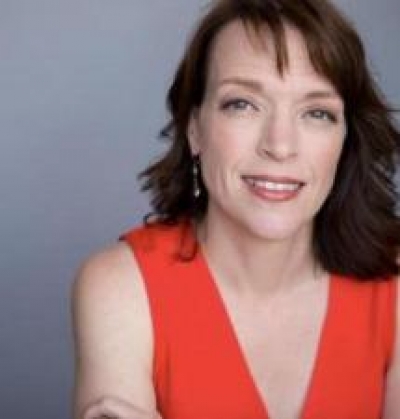Get to Know the Duke MFA in Dance Faculty: Sarah Wilbur

We had the wonderful opportunity to sit with Sarah Wilbur, Assistant Professor of the Practice of Dance, and gain some additional perspective on the new MFA in Dance: Embodied Interdisciplinary Praxis. Sarah discusses with us the uniqueness of the program, coursework that she is developing, and advice for prospective applicants. Read more to hear some of her valuable guidance for applicants looking to craft their research proposals to be a part of the first graduate class, starting Fall of 2019.
Can you tell us a bit about your own background?
I’m a child of the 1970s, born in Milwaukee, and as a member of the MTV generation I omnivorously sought dance experiences but was not exposed to “institutionalized” dance until college. I ran a local dance collective and concurrently worked as a freelance choreographer across the realms of musical theatre, theatre, opera, K-12 education and healthcare for the first decade of my career. In 2007, I moved to Los Angeles and spent the next decade working on a project basis in art, education, health, and military health contexts while earning terminal graduate degrees in dance practice (MFA) and culture and performance studies (PhD) at UCLA. Interested parties can see more about my background and my ongoing research online.
What coursework are you developing for the MFA in Dance?
I am developing advanced courses in critical dance studies that that put writing forth as, itself, a deeply creative and always embodied practice. In addition to seminars that hone graduate students’ ability to wrap words around movement and its power, I also teach topics courses that integrate ethnographic observation, interview, and analysis to local arts institutions and infrastructures as a means of valuing un- and under-recognized labor in the arts.
What will these courses help MFA students achieve?
These course offerings will help MFA students to situate their work historically, theoretically, and inside very specific and highly political market economies. My own academic research on arts funding and political economy undergirds my efforts to help artists notice how institutionalized ‘norms’ and ‘standards’ pressure and sometimes thwart sustainable environments for dance in local contexts.
The focus of study in the new MFA in Dance has such a range of possibility. How would you recommend that applicants develop and make the most of their own individualized program?
First, I’d suggest searching through Scholars@Duke using keywords that are central to your interests and read about the world-class faculty on Duke’s campus with whom you might study inside and outside of dance. Then, I’d email a member of the dance faculty directly and ask for time with that person to strategize about the campus and its resources that might best fit your interests and long-term goals. Finally, ask a range of dance faculty members what is meant by “praxis” in the title of the degree to better understand how the notion of theory-into-action is differently articulated by those running the program.
What excites you most about being a part of this inaugural year of a new graduate program?
The enthusiasm I’ve seen across the non-arts areas of campus for this MFA in Dance invigorates me; faculty and administrators from the humanities, health sciences, engineering, business, and even the Divinity school have expressed deep support for dance, and Duke has invested in a beautiful new facility in the Rubenstein Arts Center. This support, coupled with the interdisciplinary research agenda of Duke as a whole, are key to a truly immersive graduate experience in dance.
What advice can you give to candidates preparing to apply to the MFA in Dance?
In your work sample, avoid making too many edits. In your writing, avoid universalizing about your work or about what dance is or does in the world. Try to present your work in its specific, cultural, and historical context as best you can so the admissions faculty can weigh whether Duke is an appropriate fit for your skills and ambitions. Research the program and faculty and interdisciplinary initiatives on campus and speak to specific programs and people that you want to get to know while you’re here to help us to see a potential trajectory for you during your time at Duke. Above all else, celebrate yourself and your achievements by including any and all relevant professional experiences that would be germane to your presence as a citizen of the program. All of this information will help us to help you thrive here.
-
Applications for Duke University’s MFA in Dance: Embodied Interdisciplinary Praxis are now open. You can learn more about how to apply here.




